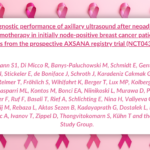
The 2025 ASCO Gastrointestinal Cancers Symposium (ASCO GI) commenced in San Francisco on January 23, 2025. During the conference, Dr. Ying Yuan from The Second Affiliated Hospital of Zhejiang University School of Medicine presented the latest survival data and subgroup analysis from the BBCAPX study. Oncology Frontier had the privilege of discussing the updated findings with Dr. Ying Yuan. This article summarizes the key insights from the study to provide valuable updates for clinicians and researchers.Dr. Ying Yuan:MSS-type metastatic colorectal cancer accounts for 95% of advanced colorectal cancer cases and does not respond well to monotherapy with immune checkpoint inhibitors. Current research focuses on combination strategies involving chemotherapy, targeted therapies, and patient selection based on molecular subtypes.
Preclinical studies suggest that anti-angiogenic agents can reverse the immunosuppressive tumor microenvironment, while chemotherapy agents like oxaliplatin and fluoropyrimidines can promote tumor antigen release and recognition.
The BBCAPX trial specifically targeted RAS-mutant MSS mCRC patients, using a combination of sintilimab, bevacizumab, and CAPOX. The 2024 ASCO update reported a median PFS of 17.9 months in the full analysis set, 9.79 months in the per-protocol set, 23.7 months for liver metastasis patients, and 11.5 months for non-liver metastasis patients.
The latest ASCO GI update provided overall survival (OS) data, showing a 24-month OS rate of 72% and a median OS of 35.5 months in the per-protocol set. Liver-only metastasis patients had the best prognosis, with a median PFS of 25.3 months and an unreached median OS, while other metastasis patients had a median PFS of 11.5 months and a median OS of 35.5 months.
Liver metastases are generally associated with poor immunotherapy response. Similar results have been observed in other solid tumors, such as lung cancer, where combining immunotherapy with chemotherapy has shown mixed success. The Impower150 study demonstrated that adding bevacizumab to immunotherapy improved survival in lung cancer patients with liver metastases. However, in colorectal cancer, combining immune checkpoint inhibitors with small-molecule TKIs has not yielded consistent benefits for liver metastasis patients.
The latest survival data from the BBCAPX trial suggest that sintilimab combined with bevacizumab and CAPOX exhibits promising efficacy in RAS-mutant MSS mCRC, particularly in liver metastasis patients. The ongoing Phase III BBCAPX trial is highly anticipated, and further translational research is needed to clarify why liver metastasis patients derive greater benefit from the addition of bevacizumab.
Dr. Ying Yuan Director of the Department of Medical Oncology, the Second Affiliated Hospital of Zhejiang University School of Medicine Professor, Chief Physician, Doctoral Supervisor Deputy Director of the Key Laboratory of Early Warning and Intervention for Malignant Tumors of the Ministry of Education Executive Deputy Editor-in-Chief and Director of the Editorial Department of the Journal of Practical Oncology Winner of the First China Young Scientists Award in Oncology (2016) Winner of the Excellent Style Award of the Third National Renowned Doctors (2019) Executive Director of the Chinese Society of Clinical Oncology (CSCO) Deputy Chairman of the CSCO Colorectal Cancer Expert Committee Standing Committee Member of the CSCO Gastric Cancer Expert Committee Deputy Chairman of the Familial Hereditary Tumor Committee of the Chinese Anti-Cancer Association Standing Committee Member of the Chemotherapy Professional Committee of the Chinese Anti-Cancer Association for Clinical Oncology Standing Committee Member of the Colorectal Cancer Committee of the Chinese Anti-Cancer Association, Head of the Genetics Group President-elect of the Oncology Branch of the Zhejiang Medical Association Chairman of the Familial Hereditary Tumor Professional Committee of the Zhejiang Anti-Cancer Association


